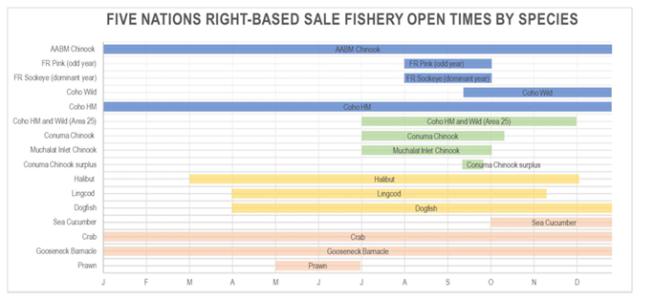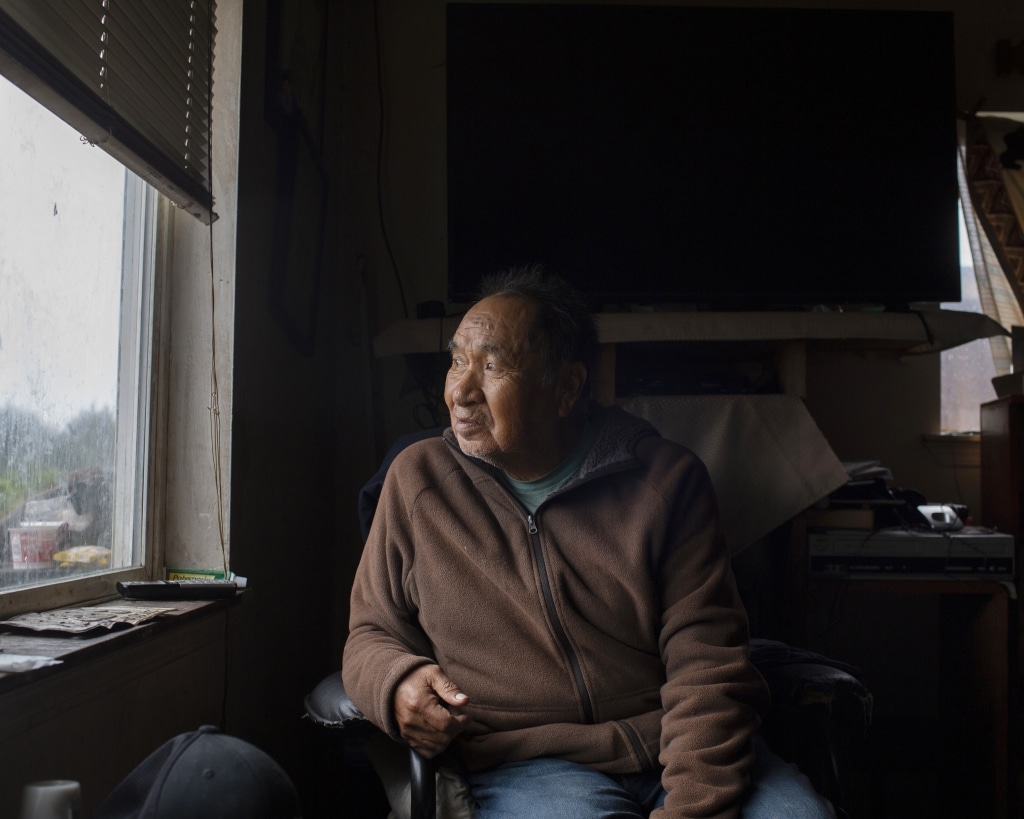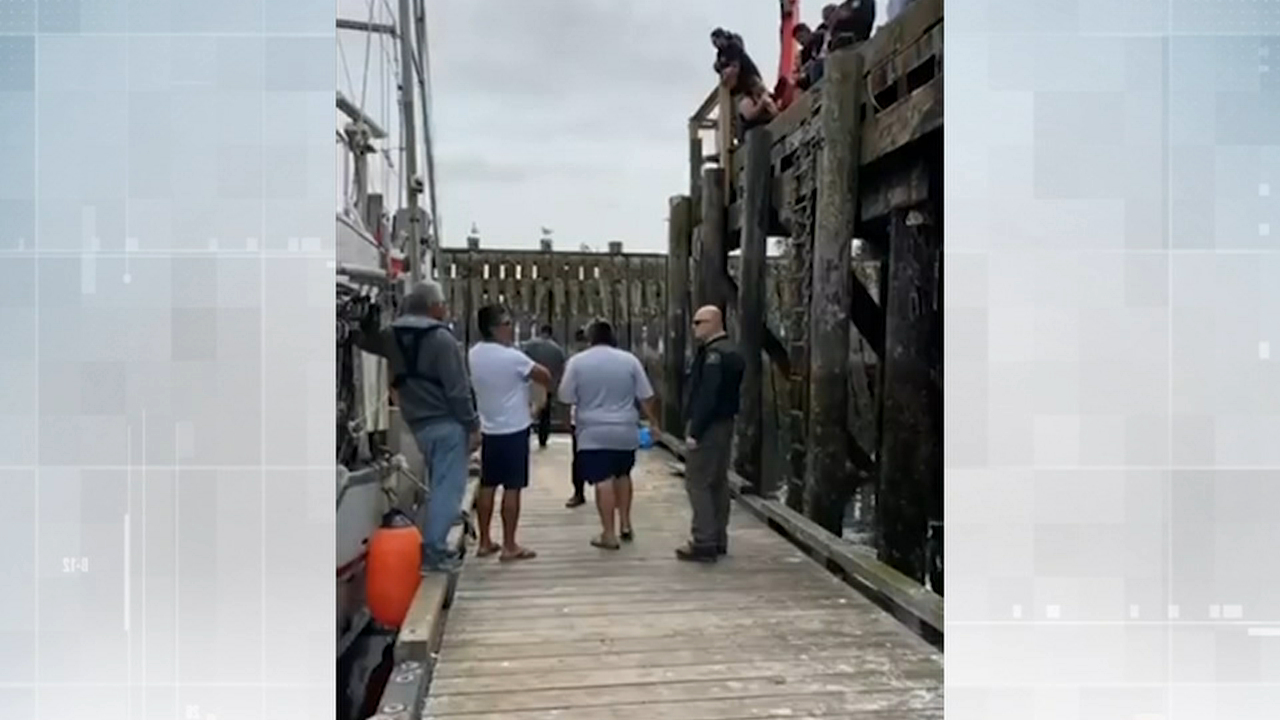wildmanyeah
Crew Member
KEY CHANGES FROM THE 2022/23 FMP April 1, 2024 Version
1.1 This section highlights changes to the FMP for the 2023/24 season, including changes implemented in-season after the 2022/23 FMP was issued.
2.1 Phased implementation of Crab Allocation increase is complete The crab allocation of 25.97% (up from 10.85%) of the commercial trap limit for E-Tofino (2,182 traps), will be fully implemented for 2023/24 as follows: o E-Tofino Area 24 - 50% (up from 30.31% implemented in Phase 1/2022) of the commercial trap limit (maximum 800 traps of the total access) and; o Amphitrite Hole - 25.97% (up from 15.63% implemented in phase 1/2022) of the commercial trap limit (maximum 831 traps of the total access). o Remainder of E-Tofino – maximum 2,182 traps of the total access minus the number of traps fished in Trap Limit Areas E-Tofino 24 and Amphitrite Hole.
2.2 AABM and Conuma Chinook allocations adjusted in-season in 2022 In July 2022, after consultations with the Five Nations, DFO revised the AABM Chinook and Nearshore/Terminal Conuma Chinook allocations in-season:
a) AABM Chinook allocation The Five Nations AABM Chinook allocation has been adjusted based on revised calculation methodology from 14.98% to 16.91% of the available catch remaining after requirements for FSC/Treaty have been deducted from the WCVI AABM CTAC.
b) Conuma Chinook allocation The Five Nations Nearshore/Terminal Conuma Chinook allocation has been adjusted based on revised calculation methodology from 30.5% to 40.13% of the CTAC, where the CTAC is the total estimated return to Conuma after accounting for escapement requirements, and FSC/Treaty obligations.
2.3 Fishing for finfish to occur within original Court Defined Area (within nine nautical mile limit) after March 31, 2023 Under the 2022 Interim Monitoring and Pilot Fishery Agreement, DFO authorized fishing for salmon and groundfish seaward of nine nautical miles on an interim basis and subject to the terms set out in that agreement. The Interim Monitoring and Pilot Fishery Agreement was a flexibility offered by DFO beyond the Aboriginal right established by the courts. Although the Five Nations and DFO discussed the potential renewal of the Interim Monitoring and Pilot Fishery 2023/24 Five Nations Multi-species Fishery Management Plan V. 1.1 Extension to June 30, 2024 Page 15 of 126 April 1, 2024 Version 1.1 Agreement beyond March 31, 2023, renewal was not agreed to prior to publication of the 2023/24 FMP. The 2023/24 FMP therefore reflects the expiry of the Interim Agreement on March 31, 2023, and a return of the fishing area to the original Court Defined Area.
2.4 VMS requirement for vessels equipped with commercial troll gear configurations removed from 2023/24 FMP Under the 2022 Interim Monitoring and Pilot Fishery Agreement, vessels equipped with commercial salmon troll gear configurations were no longer required to use VMS. Following further review of this requirement in light of the 2021 BCCA Decision, DFO has removed this requirement from the 2023/24 FMP. This is consistent with the Five Nations MSFMP.
2.5 Plug requirement for vessels equipped with commercial troll gear configurations removed from 2023/24 FMP. Following consultation with the Five Nations and further review of this requirement in light of the 2021 BCCA Decision, DFO has removed the requirement that vessels equipped with commercial troll gear configurations use plugs in the AABM Chinook fishery from July 1- September 15 from the 2023/24 FMP. This is consistent with the Five Nations MSFMP.
3.2 Consideration of information provided by the Five Nations During negotiations on the potential renewal of the Interim Monitoring and Pilot Fishery Agreement and in written correspondence, the Five Nations requested access to Crab beyond 9NM, Sablefish as by-catch on groundfish directed trips and directed Tuna opportunities. This was considered as part of those negotiations, but agreement to renew the Interim Monitoring and Pilot Fishery Agreement beyond March 31, 2023 was not reached prior to publication of the FMP. DFO has considered specific items that were included in the Five Nations 2023/24 MSFMP provided to DFO in December, 2022, but determined that it would not make further changes to the 2023/24 FMP. Specific items considered include: Review of monitoring levels for the multi-species fishery as a whole. Access to the entirety of Crab Trap Limit Area “Amphitrite Hole”, including the area outside of the CDA (south and southwest). Increase to the AABM Chinook allocation to 25% of CCTAC net of Maanulth and FSC allocations, or 20,000-piece baseline (i.e. minimum), whichever is greater. Increase to the Offshore Coho allocation to 15,000 pieces. Increase to the Nearshore Coho allocation to 5,000 (3000 Area 25; 2000 Area 24). Increase to the Halibut allocation to 2.8% of CTAC. Increase to prawn allocation, particularly for Ehattesaht and Mowachaht/Muchalaht First Nations 3.3 Species covered by the Multi-species Right-Based Sale Fishery The Five Nations hold Aboriginal rights to harvest and sell all species of fish (excluding geoduck) present in the CDA. Consistent with the 2018 Court Order, the first FMP issued on March 31, 2019 (the “2019 FMP”) provided the Five Nations with harvesting opportunities for salmon, groundfish, prawn, and crab. The 2020/21 FMP added an opportunity for gooseneck barnacles, and an additional harvest opportunity for Sea Cucumber was added in the 2021/22 FMP. DFO is committed to working with the Five Nations to expand the multi-species sale fishery in future years to include opportunities to harvest additional species. Existing access that could be used to develop such opportunities is outlined in Appendix 1 of the FMP. 2023/24 Five Nations Multi-species Fishery Management Plan V. 1.1 Extension to June 30, 2024 Page 17 of 126 3.4 Assessing the opportunity for economic viability April 1, 2024 Version 1.1 Managing a unique multi-species fishery like this is new to both DFO and the Five Nations, and there is much to learn about the factors affecting its performance. DFO has continued to provide funding to the Five Nations for an independent study that will help both DFO and the Five Nations better understand the drivers of economic performance in the Five Nations’ rights based sale fishery. DFO looks forward to reviewing and responding to that study when complete. Preliminary discussions have begun recently between DFO and the Five Nations in respect of initial work undertaken to date. DFO considers that the opportunity for economic viability of the right-based fishery will be improve if the Five Nations choose to fish some or all of their ATP/PICFI access to salmon, groundfish, crab, prawn and Sea Cucumber in the FMP, and as opportunities to harvest other species are developed.
Subject:
FN0386-2023/24 Five Nations Multi-species Fishery Management Plan available online
The Regional Director General - Pacific approved a 90 day extension to the 2023/24 Five Nations Multi-species Fishery Management Plan(FMP) to June 30, 2024 while the Government of Canada and the Five Nations complete negotiations for an Incremental Reconciliation Agreement for Fishery Resources(see FN0326).
The extended 2023/24 FMP is now available on the Federal Science Library at: https://waves-vagues.dfo-mpo.gc.ca/library-bibliotheque/41236828.pdf
FOR MORE INFORMATION:
DFO.PACFMPConsultation-ConsultationPGPPAC.MPO@dfo-mpo.gc.ca
Fisheries & Oceans Operations Center - FN0386
Sent April 18, 2024 at 1536

1.1 This section highlights changes to the FMP for the 2023/24 season, including changes implemented in-season after the 2022/23 FMP was issued.
2.1 Phased implementation of Crab Allocation increase is complete The crab allocation of 25.97% (up from 10.85%) of the commercial trap limit for E-Tofino (2,182 traps), will be fully implemented for 2023/24 as follows: o E-Tofino Area 24 - 50% (up from 30.31% implemented in Phase 1/2022) of the commercial trap limit (maximum 800 traps of the total access) and; o Amphitrite Hole - 25.97% (up from 15.63% implemented in phase 1/2022) of the commercial trap limit (maximum 831 traps of the total access). o Remainder of E-Tofino – maximum 2,182 traps of the total access minus the number of traps fished in Trap Limit Areas E-Tofino 24 and Amphitrite Hole.
2.2 AABM and Conuma Chinook allocations adjusted in-season in 2022 In July 2022, after consultations with the Five Nations, DFO revised the AABM Chinook and Nearshore/Terminal Conuma Chinook allocations in-season:
a) AABM Chinook allocation The Five Nations AABM Chinook allocation has been adjusted based on revised calculation methodology from 14.98% to 16.91% of the available catch remaining after requirements for FSC/Treaty have been deducted from the WCVI AABM CTAC.
b) Conuma Chinook allocation The Five Nations Nearshore/Terminal Conuma Chinook allocation has been adjusted based on revised calculation methodology from 30.5% to 40.13% of the CTAC, where the CTAC is the total estimated return to Conuma after accounting for escapement requirements, and FSC/Treaty obligations.
2.3 Fishing for finfish to occur within original Court Defined Area (within nine nautical mile limit) after March 31, 2023 Under the 2022 Interim Monitoring and Pilot Fishery Agreement, DFO authorized fishing for salmon and groundfish seaward of nine nautical miles on an interim basis and subject to the terms set out in that agreement. The Interim Monitoring and Pilot Fishery Agreement was a flexibility offered by DFO beyond the Aboriginal right established by the courts. Although the Five Nations and DFO discussed the potential renewal of the Interim Monitoring and Pilot Fishery 2023/24 Five Nations Multi-species Fishery Management Plan V. 1.1 Extension to June 30, 2024 Page 15 of 126 April 1, 2024 Version 1.1 Agreement beyond March 31, 2023, renewal was not agreed to prior to publication of the 2023/24 FMP. The 2023/24 FMP therefore reflects the expiry of the Interim Agreement on March 31, 2023, and a return of the fishing area to the original Court Defined Area.
2.4 VMS requirement for vessels equipped with commercial troll gear configurations removed from 2023/24 FMP Under the 2022 Interim Monitoring and Pilot Fishery Agreement, vessels equipped with commercial salmon troll gear configurations were no longer required to use VMS. Following further review of this requirement in light of the 2021 BCCA Decision, DFO has removed this requirement from the 2023/24 FMP. This is consistent with the Five Nations MSFMP.
2.5 Plug requirement for vessels equipped with commercial troll gear configurations removed from 2023/24 FMP. Following consultation with the Five Nations and further review of this requirement in light of the 2021 BCCA Decision, DFO has removed the requirement that vessels equipped with commercial troll gear configurations use plugs in the AABM Chinook fishery from July 1- September 15 from the 2023/24 FMP. This is consistent with the Five Nations MSFMP.
3.2 Consideration of information provided by the Five Nations During negotiations on the potential renewal of the Interim Monitoring and Pilot Fishery Agreement and in written correspondence, the Five Nations requested access to Crab beyond 9NM, Sablefish as by-catch on groundfish directed trips and directed Tuna opportunities. This was considered as part of those negotiations, but agreement to renew the Interim Monitoring and Pilot Fishery Agreement beyond March 31, 2023 was not reached prior to publication of the FMP. DFO has considered specific items that were included in the Five Nations 2023/24 MSFMP provided to DFO in December, 2022, but determined that it would not make further changes to the 2023/24 FMP. Specific items considered include: Review of monitoring levels for the multi-species fishery as a whole. Access to the entirety of Crab Trap Limit Area “Amphitrite Hole”, including the area outside of the CDA (south and southwest). Increase to the AABM Chinook allocation to 25% of CCTAC net of Maanulth and FSC allocations, or 20,000-piece baseline (i.e. minimum), whichever is greater. Increase to the Offshore Coho allocation to 15,000 pieces. Increase to the Nearshore Coho allocation to 5,000 (3000 Area 25; 2000 Area 24). Increase to the Halibut allocation to 2.8% of CTAC. Increase to prawn allocation, particularly for Ehattesaht and Mowachaht/Muchalaht First Nations 3.3 Species covered by the Multi-species Right-Based Sale Fishery The Five Nations hold Aboriginal rights to harvest and sell all species of fish (excluding geoduck) present in the CDA. Consistent with the 2018 Court Order, the first FMP issued on March 31, 2019 (the “2019 FMP”) provided the Five Nations with harvesting opportunities for salmon, groundfish, prawn, and crab. The 2020/21 FMP added an opportunity for gooseneck barnacles, and an additional harvest opportunity for Sea Cucumber was added in the 2021/22 FMP. DFO is committed to working with the Five Nations to expand the multi-species sale fishery in future years to include opportunities to harvest additional species. Existing access that could be used to develop such opportunities is outlined in Appendix 1 of the FMP. 2023/24 Five Nations Multi-species Fishery Management Plan V. 1.1 Extension to June 30, 2024 Page 17 of 126 3.4 Assessing the opportunity for economic viability April 1, 2024 Version 1.1 Managing a unique multi-species fishery like this is new to both DFO and the Five Nations, and there is much to learn about the factors affecting its performance. DFO has continued to provide funding to the Five Nations for an independent study that will help both DFO and the Five Nations better understand the drivers of economic performance in the Five Nations’ rights based sale fishery. DFO looks forward to reviewing and responding to that study when complete. Preliminary discussions have begun recently between DFO and the Five Nations in respect of initial work undertaken to date. DFO considers that the opportunity for economic viability of the right-based fishery will be improve if the Five Nations choose to fish some or all of their ATP/PICFI access to salmon, groundfish, crab, prawn and Sea Cucumber in the FMP, and as opportunities to harvest other species are developed.
Subject:
FN0386-2023/24 Five Nations Multi-species Fishery Management Plan available online
The Regional Director General - Pacific approved a 90 day extension to the 2023/24 Five Nations Multi-species Fishery Management Plan(FMP) to June 30, 2024 while the Government of Canada and the Five Nations complete negotiations for an Incremental Reconciliation Agreement for Fishery Resources(see FN0326).
The extended 2023/24 FMP is now available on the Federal Science Library at: https://waves-vagues.dfo-mpo.gc.ca/library-bibliotheque/41236828.pdf
FOR MORE INFORMATION:
DFO.PACFMPConsultation-ConsultationPGPPAC.MPO@dfo-mpo.gc.ca
Fisheries & Oceans Operations Center - FN0386
Sent April 18, 2024 at 1536

Last edited by a moderator:


